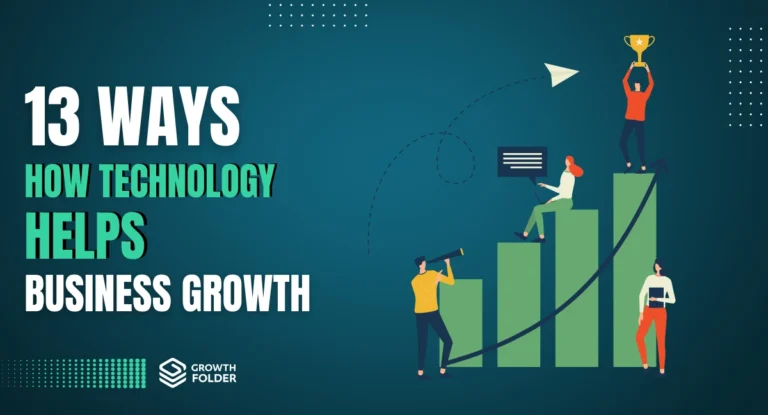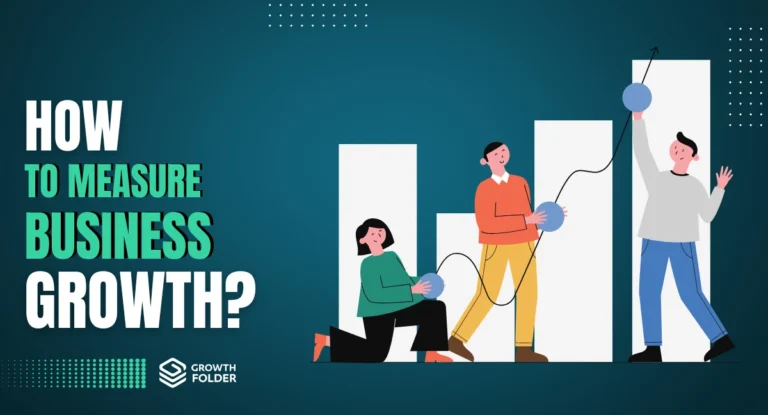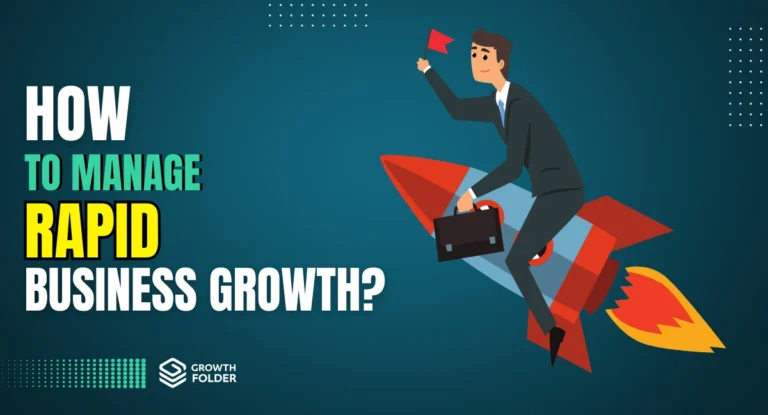
Every economic crisis brings with it areas of opportunity.
The pandemic gave rise to many new businesses – starting from within homes, local shops, late-night after-office sessions, and more.
But what does it take to make such businesses thrive?
What skills differentiate a business that is local versus one that expands internationally?
We think: it’s the person behind the name (and their skills).
This article summarises some of the crucial take-ups on the characteristics & skills of an entrepreneur.
Who Is An Entrepreneur?

By definition – an entrepreneur is someone who sets up a business. They usually set it up themselves, investing their own financial resources and as such, bear certain risks.
However, definition aside, an entrepreneur can be many things. They are businessmen, innovators, researchers, and speakers. They are artists (they create new things – even jobs), marketers, philanthropists, and of course, humans.
If you have an idea that you think can one day be a successful business – beware! It’s a path many have trodden and few have succeeded in.
But that’s why we’re here. By cultivating certain skills and mindsets, you can increase your chances of success. With some daily practice, you can improve your communication, financial literacy, and even network size.
This article is all about what goes on behind the minds of great entrepreneurs. And maybe, one of them could be you!
Personal Characteristics Of An Entrepreneur

There are many things that make an entrepreneur: an open-mindedness towards new ideas, the urge to push boundaries, calculated thought processes for risk-taking, and perhaps, even articulate wording!
However, with almost 8 billion people in the world, we’re stuck with an equal number of different personalities! But while any one of them is capable of becoming an entrepreneur, few actually succeed in doing so.
While you may be as creative or rational as needed, there are some characteristics that are common among those who make it big.
1) Flexibility
Having the flexibility to adapt to new changes in technology, market changes, business strategies, and agenda is paramount to keeping up with the ups and downs of running a business.
2) Self-Motivation
It’s a long journey to being a successful entrepreneur. And keeping yourself engaged and committed to the long-term goal is fraught with challenges. Bouts of self-doubt and imposter syndrome can creep in from time to time. The ability to keep oneself calm and work slowly but surely toward the finish line is a top entrepreneurial characteristic.
3) Creativity
No, we don’t just mean the creative arts here! Creativity here also refers to imagination, future vision, and inquisitiveness.
Entrepreneurs see opportunities where others don’t, envision solutions others can’t, and enquire where others pass by. You certainly need a creative and open mind to be able to do those.
4) Taking Risks
Perhaps the decision to commit to being an entrepreneur is itself fraught with risk! However, a healthy dose of risk-taking is a necessary trait.
Taking risks means one is exploring beyond their comfort zone. And you cannot grow without stepping out of your comfort zone! Having said this, however, even risky decisions must be backed by sound judgment and market study.
5) Self-Confidence
Lastly, a successful entrepreneur should have assurance and belief in oneself and one’s abilities. Call it tenacity, passion, or perseverance if you must. But if you’re someone who is constantly learning and bettering yourself – you should have no trouble believing that you can cross any hurdle that comes your way.
What Are Entrepreneurial Skills?

While anyone can have an idea that can result in success, not everyone may have the necessary skills to bring it to fruition. Expanding from a small business to a large corporation requires technical knowledge and skill that not everyone has.
Entrepreneur skills refer to a subset of skills that most entrepreneurs have developed – and which play a role in their success.
However, these skills can be learned. In fact, most of the technical skills for entrepreneurs are things people learn along the way. No one is a born entrepreneur!
9 Must-Have Skills That Every Entrepreneur Should Have

Here we look at some common skills and qualities of an entrepreneur.
1. Networking
While small businesses really need just a handful of major clients to make it big – it is not enough in the long run! You need to have the networking skills to be able to continuously attract new clients.
Networking may take the form of keeping an eye out and attending related events or volunteering to conduct workshops or lectures at institutes. The goal is to put oneself and one’s skills out there for all to see!
2. Effective Communication
Entrepreneurs typically need to work with and appease multiple stakeholders. Communicating ideas and strategies with clarity in fewer words is essential to get investors. Short, succinct, yet informative presentations and facts are the things that get across the board.
In fact, communication does not only help here but also in setting goals and offering instructions to your own team. There’s nothing more vital than sending the right message.
3. Resourcefulness
Everyone in your workplace will look up to you as a leader and forward thinker. While this can be a comforting thought, it is critical during times of crisis.
Being resourceful combines several other skills discussed here: having a good network to help you, thinking critically through the problem, managing your own stress from it, and effectively delegating tasks to your employees to resolve the crisis.
Accounting is one such skill set that every entrepreneur should definitely have. Having a good knowledge of your finances gives you better hold on your business. You may use online accounting software to automate & streamline the hassle of your bookkeeping.
Either way, you must be prepared and constantly keep up with the current market, your team, and competitors to be able to clearly act during such times.
4. Leadership
It’s no surprise that some amount of leadership skills are essential to take charge and forge ahead. Good leaders influence and inspire others. They set an example in terms of work ethics, practices, and culture.
Great leaders can also directly influence the customer! Think of Elon Musk or Ratan Tata, who have each at some point achieved celebrity status not only amongst investors and stakeholders but among the regular public.
5. Critical Thinking
Everyone knows how to solve problems. However, entrepreneurs don’t merely solve problems – they do so in the most efficient and long-term way! The ability to think long-term, visualize multiple perspectives, and come up with many potential solutions.
This sort of open-ended thinking allows entrepreneurs to connect ideas, reduce working costs and come up with innovative solutions in times of crisis.
As the old quote goes – you can give a man a fish and he can eat it for a day. However, teaching him how to fish can result in a lifetime of self-sustenance! It is the latter, long-term solution that critical thinking helps one reach.
6. People Management
A company is only as strong as the people in it. Hiring effective people to manage the funnel is essential to keep your business running smoothly. People management also includes other aspects like training the hired talent, aiding their work ethics, optimizing your organization for their health and safety, and more.
Keep an eye out for your strategy and find out your weak points. Do you need to hire someone to fill in this gap? Could some existing teams be restructured for better results? Would your people benefit from a training session on the latest software?
It is perceiving these differences that differentiate a good versus a great entrepreneur.
7. Money Management
Financial literacy – despite being a common need for everyone – is hardly taught in schools. But it’s essential to become a successful entrepreneur. Delegating everything to an accountant can cause you to lose track of your cash flow. Remain aware of your profit margins, check out your balance sheets, and keep track of the key metrics of your business.
Entrepreneurs invest early in financial planning and closely track all anticipated cash flows. Moreover, remember to build credibility among banks and involve experts in short-term and long-term cash flow projections.
8. Stress Management
With great work comes great responsibility!
Stress can often be something that gets overlooked in the rush for success. However, managing stress is not just something you need to do for yourself – but for your organization as well. In the long term, taking care of your mental and physical health pays large dividends.
In fact, it’s not just your health, but also your employees’ health that you should take into account.
9. Time Management
It’s easy to get lost in the details and lose sight of the bigger picture. This is where time management comes in. If you’re not someone good at it by default – that’s no problem! There are many existing methods that can be used to structure your day’s agenda.
Some top methods include the Rapid Planning Method (RPM) and the Pomodoro Technique. Strategic planning is essential to make sure you achieve your fullest potential every day!
As a subset of time management, also decide on the projects and the time devoted to each based on their dividend. This way, even if you can’t personally attend to a project, you can foresee and delegate tasks to someone else. One person can’t do them all, but you can manage them all.
How To Develop Your Entrepreneurial Skills?

There’s a reason why everything in the above list is called a “skill” and not a characteristic. It’s because you can develop them all!
Not good at managing money? There are hundreds of free and paid courses that can help you learn! Bad at communication? Start your own book club!
Some common steps on how to develop entrepreneurial skills that you can do daily are:
FAQ
Q1. What makes a successful entrepreneur?
There’s no specific list of requirements that can make you an entrepreneur. In fact, some of the most famous entrepreneurs have defied all odds.
Felix Dennis, the owner of Dennis Publishing, famously had no financial literacy. Colonel Harland Sanders started his famous KFC business at the age of 62! Andrew Carnegie, one of the richest industrialists of all time had no educational background – let alone any business knowledge.
It’s all up to one who seizes opportunities and makes the best of them.
Q2. What are the 3 main important skills of an entrepreneur?
Everyone starts somewhere. However, once you’re in the business – learning constantly is a mandate! The top 3 skills you would eventually have to develop to run a successful business are:
– Cultivating a habit of open-mindedness to look for unlikely possibilities and gauge its risks
– Understanding your business strategy – knowing your competitors and customers alike and what sells
– Communication – both to the public and with your stakeholders
Q3. How do I learn technical skills for entrepreneurs?
Be active, and keep learning! Despite how big and successful they are, entrepreneurs never forget that learning is constant and knowledge is infinite. Keep looking for courses, keep pushing your boundaries, and search out people whom you can learn from.
Moreover, look for someone whose journey inspires you. Find a mentor and build a good relationship with them. Having higher guidance to fall back upon can help you remain collected in moments of turmoil.
As someone starting out, it helps to know the kind of pitfalls and challenges you might encounter. Developing these entrepreneurial skills can make facing these challenges a bit easier.
Final Words
While we have tried to list down some of the crucial skills of an entrepreneur, there is a catch!
And the catch is – there’s no right path to being an entrepreneur.
This risk is what attracts and deters most people. While the traits discussed here are the skills and qualities of an entrepreneur, it’s not something you need to begin your journey.
Begin and keep learning. Start small and keep going.
Develop smaller skills every day in practice, and you’re good to go!






